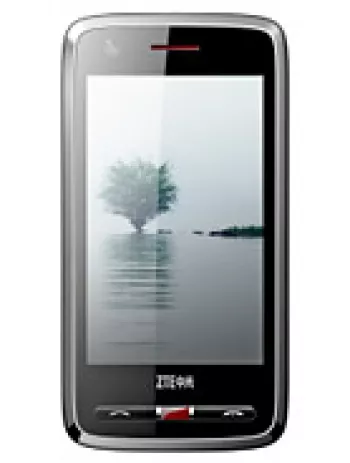
Overview of ZTE Rio
The ZTE Rio, released in 2011, marked itself as a feature phone catering to users seeking practical functionality with basic smart features. It stands as a testament to the transitional period in mobile phone technology when the shift from feature phones to smartphones was burgeoning. Despite being discontinued, its design and features provide a glimpse into the era's technological landscape.
Design and Build
With dimensions of 107 x 61 x 12 mm and a weight of 90 grams, the ZTE Rio was lauded for its compact and lightweight design, making it comfortable to hold and easy to carry. The phone features a QWERTY keyboard, which was a popular design choice back then for users who preferred physical keys over touchscreens for typing. It supported a Mini-SIM card, which aligns with the standard of the time.
Display
The ZTE Rio is equipped with a 2.4-inch TFT resistive touchscreen that supports 256K colors. The display resolution is 320 x 240 pixels with a 4:3 aspect ratio, providing a pixel density of approximately 167 ppi. While it may seem basic by today's standards, the display was adequate for its time, offering clarity for basic tasks like texting, calling, and light web browsing.
Camera
The device comes with a 2 MP main camera capable of capturing still images and video recording. Although it lacks the advanced features found in modern smartphones, this camera was sufficient for capturing spontaneous moments for personal use. The absence of a front-facing camera indicates the phone's primary focus was on practical use rather than multimedia engagement.
Memory and Storage
In terms of memory, the ZTE Rio features 1MB of internal storage supported by a dedicated microSDHC slot, allowing users to expand storage as needed. This capability was essential for storing contacts, messages, and multimedia files, considering the limited internal storage offered by most feature phones of that time.
Battery Life
Powered by a removable Li-Ion battery, the ZTE Rio boasts an impressive standby time of up to 550 hours and a talk time of up to 8 hours and 20 minutes. These specifications highlight its efficiency and longevity, catering to users who needed reliable performance without frequent recharging.
Connectivity and Network
The ZTE Rio supports GSM 900/1800 bands and offers basic connectivity options like GPRS and EDGE for internet browsing. It lacks modern connectivity options like WiFi and GPS but includes Bluetooth for file sharing and an FM radio for entertainment. The device features a miniUSB 2.0 port for charging and data transfer.
Multimedia and Features
The phone includes an FM radio, offering users access to live broadcasts without internet usage. It supports basic vibrating alert types and has a loudspeaker along with a 3.5mm jack for audio external output. For messaging, it supports SMS, MMS, and email, providing basic communication options.
Miscellaneous Features
Offered in colors like black and pink, the ZTE Rio added a touch of personalization amidst its utilitarian design. The phone supports basic gaming, offering a distraction during spare moments. Despite its primary function being communication, these entertainment and aesthetic options provided an added layer of user satisfaction.
Conclusion
The ZTE Rio, while a product of its time, reflects the early 2010s' mobile phone technology, balancing the shift from basic cell phones to the smarter, versatile devices we see today. Offering necessary features with its efficient design, it served those who needed reliability and functionality without the complex smart features that were still materializing in the broader market. Its legacy persists as a testament to ZTE's commitment to quality and user-friendly technology during a rapidly evolving technological era.
ZTE Rio Key Features
- Compact and Lightweight Design: The device measures 107 x 61 x 12 mm and weighs only 90 g, making it easy to carry.
- QWERTY Keyboard: Features a physical QWERTY keyboard for easy typing.
- Expandable Storage: Includes a dedicated microSDHC card slot for additional storage.
- 2 MP Main Camera: Offers basic photography with a 2 MP rear camera that supports video recording.
- FM Radio: Built-in FM radio for listening to music and news.
- Bluetooth Connectivity: Allows for wireless connection to other Bluetooth-enabled devices.
- Long Battery Life: Removable Li-Ion battery providing up to 550 hours of standby time and 8 hours and 20 minutes of talk time.
- Multiple Color Options: Available in Black and Pink.
ZTE Rio Key Disadvantages
- Lacks 3G/4G/5G network connectivity; only supports GSM
- Discontinued model, limited support and availability
- Uses a resistive touchscreen which is less responsive than capacitive
- Very low internal memory of only 1MB
- No front (selfie) camera
- Missing WLAN (Wi-Fi), limiting internet connectivity options
- No built-in GPS for positioning services
- Uses miniUSB 2.0, which is outdated compared to modern USB standards
- Lack of sensors to enhance usability and functionality

View Also
More Phones
All Rights Reserved +14266 Phones © Mobilawy 2025

























